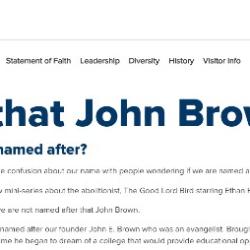In a sane universe, or a moral one, it would not be not reasonable to claim that the mere presence of an unarmed dark-skinned person was a basis to fear for one’s life. In a sane world, such fear would be regarded, rather, as the very definition of racial prejudice.
 The argument that the presence of an unarmed black man prompted a lethal response out of existential fear would not be possible as a defense against the accusation of racial prejudice in a sane world, because it would be rightly understood as a confirmation of such prejudice — as a confession of it.
The argument that the presence of an unarmed black man prompted a lethal response out of existential fear would not be possible as a defense against the accusation of racial prejudice in a sane world, because it would be rightly understood as a confirmation of such prejudice — as a confession of it.
Here in the United States, this confession of prejudice is, perversely, a legitimate and effective legal defense against the very charge being confessed. If a white person tells a grand jury that, to them, a black male “looks like a demon,” this is treated as confirmation of the reality of the threat, not as proof that this white person’s perception of black people is literally demon-izing.
It’s impossible to overstate how weirdly distorted and distorting this argument is, or how pervasive this weird distortion is in America’s courts and media. There is no logic to it unless one accepts the question-begging premise that black people are intrinsically a threat.
It makes no sense outside of the distorting frame of the Black Problem.
Within that framework, every black person is defined at the outset as threatening. That is the default presumption — a premise that is treated as a conclusion, with the full force of law. The frame of the Black Problem shapes the entire American conversation about race and crime and violence, sidelining any voices — and all of the vast evidence — that cannot be made to fit within that frame or that challenges the legitimacy of its premise.
This is not a recent development in America:
The frame of the Black Problem is unjust. It prohibits the possibility of justice. It is therefore utterly immoral.
But my point here is not to focus on the immorality of this prejudice, but on the irrationality of it. It is unreasonable. It treats its own prior assumptions as “evidence,” then recasts those assumptions as evidence-based conclusions. Once one accepts the framework of the Black Problem, it is impossible to think straight.
















